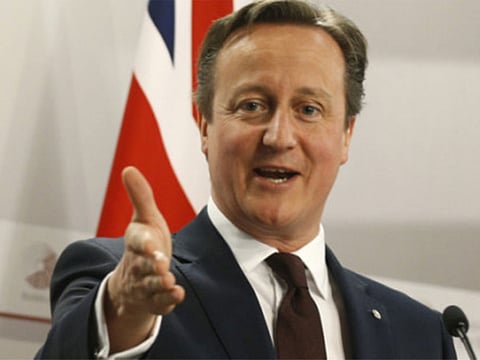The cold-blooded case for staying in Europe
If the ‘In’ campaigners are traduced as fear-mongers and bloodless accountants, they will know they are on to a winner

Three is a pattern. First, there was the derisive media coverage of the campaign against Scottish independence last year. Instead of proselytising for the union, "Better Together" spelt out the economic hazards of ending it.
Under the most sanctimonious criticism, they held the line and won. They knew wavering Scots were moved by pragmatic arguments over emotional exhortation because they had done their research and armchair campaigners had not.
The general election was a magnified version of the same story. For six weeks romantics chided the Conservatives for their sour campaign: The monomaniacal focus on the economy, the failure to match Labour’s fervour.
But the Tories won, and more resoundingly than almost any commentator foresaw. They had market-tested their pitch to swing voters. The critics relied on errant guesswork and their own prejudices.
British Prime Minister David Cameron’s promised referendum on European Union (EU) membership gives the romantics another chance to get it wrong.
Pro-Europeans in Britain and on the continent want the prime minister to make the “positive case” for Europe. But of course they do. They nag him to look beyond vulgar economics and celebrate the EU as a zone of peace, an amplifier of Britain’s diminishing influence in the world, an end in itself, not just a lucrative market.
Anyone who wants Britain in the EU should hope Cameron laughs this advice out of the room. The case for Europe must be hard-headed and cold-blooded, dwelling on the material risks of exit -- not the abstract virtues of membership. If the ‘In’ campaigners are traduced as fear-mongers and bloodless accountants, they will know they are on to a winner.
Lesson evil
In most places, most of the time, democratic politics is the act of selecting the lesser evils. Elections hinge on undecided voters who weigh up options to gauge who has the least bad implications for their livelihoods.
This is doubly true in Britain, with its aversion to ideology; and especially true of referendums that force people to choose between practical events, not just parties.
If the most zealous pro-Europeans do not see this, it is because their cause has become a species of religion not politics. They see European unity as self-evidently majestic and anyone who disagrees as a dupe. They believe Britons are only eurosceptic because they read lurid newspapers and vote for politicians too craven to tell them the Truth.
In fact, Britain is eurosceptic for the same reason as Sweden and Denmark: Its experience of independent nationhood was benign. When we think of the self-governing state, we do not shudder with memories of authoritarianism.
Economic logic made us join and it will decide whether we stay. To try and lift the referendum debate beyond cost-benefit analysis to matters of principle is to treat Britons as if they were Germans, with the same traumas.
Bad politics
It is bad politics for pro-Europeans to look at voters de haut en bas. They will win the referendum if they play the card they despise: economic risk. The status quo has an advantage in any plebiscite.
The other side must prove change will not only not make people worse off, but actually leave them better off. Otherwise the upheaval is not worth the punt. Exit need not be a disaster, true, but even the faint prospect of net economic loss will chill the blood of the undecided.
Many of the ‘In’ campaigners also recommended euro entry. Eurosceptics are entitled to maul their record of judgement. Politically, however, the two subjects are incomparable.
Joining the euro was the change option; Britain had a tolerable status quo in sterling. Supporters of the euro would have lost any referendum on that question, which is why Tony Blair did not venture to hold one.
In Cameron’s referendum, the burden switches to the other side. Britain lives the status quo of EU membership. To win, he need only spend the campaign asking questions to which there can never be a conclusive answer from the other side.
Can Britain leave the EU and retain full access to the single market? Will foreign investors leave for the continent? Why assume America, India and other big economies will greet British independence with offers to trade?
This kind of campaign is dry, cynical and boring. It will be monstered by critics, until it wins.
— Financial Times



